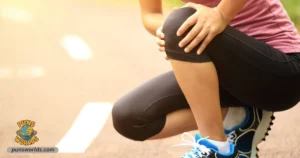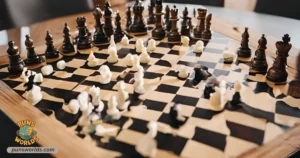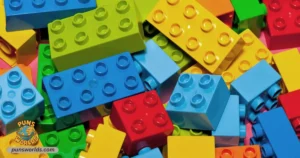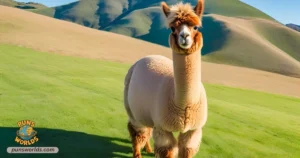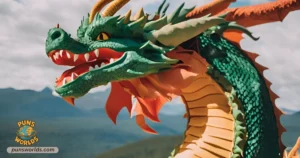Laughter is said to be the best medicine, and when it comes to psychology, a good joke can be incredibly therapeutic! Psychologists help us navigate the complexities of our minds, but they also have a sense of humor about it.
In this article, we’ve compiled 290+ psychologist puns designed to tickle your funny bone while providing a dose of mental well-being.Whether you’re a psychology enthusiast or just looking for a good laugh, these puns are sure to add a smile to your day. So, sit back, relax, and let’s dive into the world where humor and psychology meet!
Freudian Funnies: Puns About Freud’s Theories
- Why did Freud bring a ladder to therapy? To help his patients reach new heights of self-awareness!
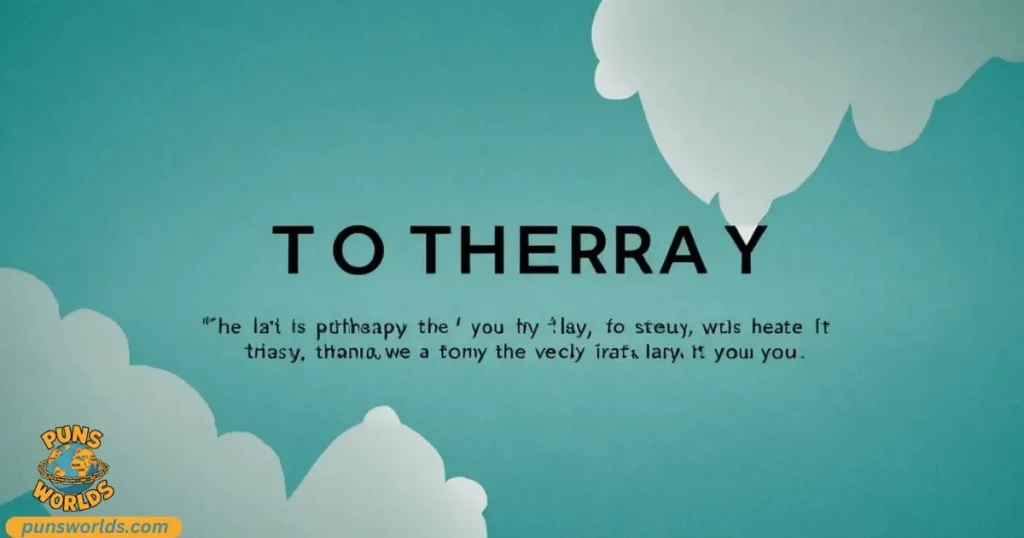
- What did Freud say about his favorite cookie? It’s an ego cookie with a lot of id!
- How does Freud stay in shape? He does plenty of subconscious crunches.
- Why did Freud start gardening? He wanted to grow his id and ego!
- How do you know if Freud is around? You might start analyzing your dreams about pastries.
- What did Freud say to the couch? “You’re really making me feel at home.”
- Why did Freud refuse to play cards? He couldn’t deal with the Freudian slips!
- How did Freud describe his pets? They’re all very instinctual.
- Why did Freud become a chef? He wanted to experiment with sublimation!
- What did Freud say about his new book? It’s a real mind-bender!
- How does Freud stay calm under pressure? He takes a lot of free association breaks.
- Why did Freud go to art school? To better understand his inner expression.
- How did Freud handle stress? He had a lot of insight!
- What’s Freud’s favorite type of music? Anything with a deep bass line!
- Why did Freud love the library? It was full of repressed books!
- How did Freud react to a surprise party? With a little bit of subconscious excitement.
- What did Freud say about his shoes? “They’re really fitting my personality!”
- Why did Freud start a band? To explore collective unconscious harmonies.
- How does Freud like his coffee? With a lot of introspection.
- Why did Freud dislike running? He preferred to walk through his subconscious.
- What did Freud say about his new car? “It’s an excellent way to work out my ego issues.”
- How does Freud fix broken things? With a bit of psychological repair.
- What’s Freud’s favorite game? The Rorschach Test!
- Why did Freud write a play? To analyze the dramatic unconscious.
- How did Freud feel about his new glasses? They gave him a clearer vision of the id.
- What did Freud say about his weekend? It was full of introspective relaxation.
- How does Freud enjoy his vacations? By exploring the subconscious sights!
- Why did Freud love puzzles? They were great for his analytic mind.
- How did Freud approach new hobbies? With a lot of psychoanalytic curiosity.
- Why did Freud become a comedian? He wanted to help people laugh at their complexes!
- What’s Freud’s favorite movie genre? Psychological thrillers, of course!
- How did Freud respond to criticism? With self-reflection and insight.
- Why did Freud join a support group? To explore collective unconsciousness.
- How did Freud react to technology? With an analytical approach to its impact on the psyche.
- Why did Freud write a blog? To share his thoughts on the human mind!
- What did Freud say about his new phone? “It’s great for quick free associations.”
- How does Freud prepare for a session? With a lot of mental gymnastics.
- Why did Freud like puzzles? They were a good exercise for his brain’s id and ego.
- What’s Freud’s favorite form of exercise? Free association aerobics!
- How did Freud feel about new technology? It’s all about understanding its impact on the mind.
- Why did Freud start a podcast? To analyze the thoughts of his listeners.
- How did Freud view his colleagues? As fellow travelers on the journey of self-discovery.
- What did Freud say about his new house? “It’s perfect for exploring the depths of my mind.”
- How did Freud feel about group therapy? It was a great way to share collective insights.
- Why did Freud enjoy holidays? They were a break from the everyday ego struggles.
- What did Freud think of meditation? It’s an excellent way to tap into the unconscious.
- How does Freud handle surprises? With a bit of psychodynamic analysis.
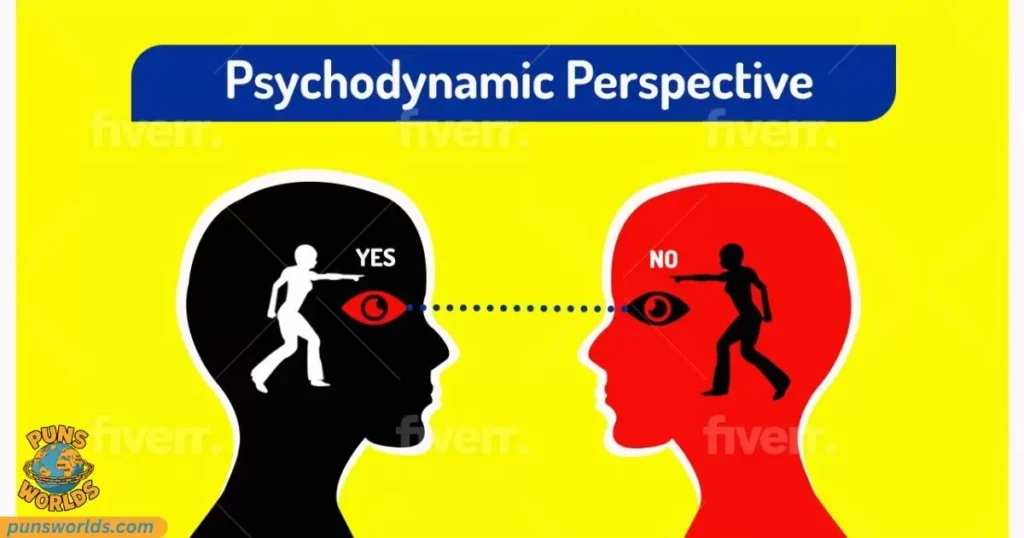
- What’s Freud’s favorite relaxation technique? Reflective journaling.
- Why did Freud like reading mystery novels? They were great for understanding hidden motives.
- How did Freud react to a new trend? With curiosity about its psychological impact.
Behavioral Puns: Jokes About Behavioral Psychology
- Why did the behaviorist cross the road? To reinforce the behavior on the other side!
- How does a behaviorist deal with procrastination? By implementing positive reinforcement!
- What did the behaviorist say to the student? “Keep up the good work, and I’ll keep providing rewards!”
- How does a behaviorist make decisions? By analyzing the data on past behaviors.
- Why did the behaviorist become a chef? To condition the taste buds!
- What’s a behaviorist’s favorite hobby? Observing behavior patterns!
- How did the behaviorist fix his broken car? With a reward system for each repaired part.
- What did the behaviorist say about exercise? “It’s all about creating good habits!”
- How does a behaviorist handle stress? By using stress management techniques as positive reinforcement.
- What’s a behaviorist’s favorite type of music? Anything with a consistent beat!
- Why did the behaviorist love puzzles? They’re great for analyzing problem-solving behaviors.
- How does a behaviorist approach new challenges? By breaking them down into manageable steps.
- What did the behaviorist say about his workout routine? “It’s all about reinforcing those good habits!”
- How does a behaviorist deal with criticism? By analyzing it as data for future behavior adjustments.
- Why did the behaviorist go to therapy? To work on his own behavior patterns!
- What did the behaviorist think of role-playing games? They’re excellent for understanding different behaviors!
- How does a behaviorist celebrate success? With positive reinforcement, of course!
- Why did the behaviorist become a motivational speaker? To help others develop productive behaviors!
- What’s a behaviorist’s favorite form of exercise? Conditioning drills!
- How does a behaviorist approach learning new skills? With a structured reinforcement plan.
- What did the behaviorist say about his new job? “It’s all about reinforcing the right behaviors!”
- How does a behaviorist handle unexpected events? By adjusting the reinforcement schedule.
- Why did the behaviorist start a blog? To share tips on improving behaviors.
- What did the behaviorist say about his new hobby? “It’s a great way to condition myself to new skills!”
- How does a behaviorist view setbacks? As opportunities for behavior modification.
- What’s a behaviorist’s favorite way to relax? By practicing mindfulness techniques!
- How did the behaviorist react to a challenge? By breaking it down into manageable behavior goals.
- Why did the behaviorist enjoy learning? It’s all about reinforcing new knowledge!
- What did the behaviorist say about his new exercise routine? “It’s a great way to reinforce positive behaviors!”
- How does a behaviorist celebrate milestones? With appropriate rewards and recognition.
- What’s a behaviorist’s favorite game? Anything that involves strategic behavior analysis!
- How does a behaviorist handle disappointments? By analyzing and adjusting future behavior strategies.
- What did the behaviorist think of social media? It’s a platform for observing and analyzing social behaviors!
- Why did the behaviorist enjoy cooking? It’s all about conditioning taste preferences!
- What’s a behaviorist’s favorite activity? Observing and reinforcing positive behaviors in everyday life.
- How did the behaviorist handle a new project? By setting clear behavioral goals and rewards.
- What did the behaviorist say about his new car? “It’s a perfect reinforcement for my commuting behavior!”
- How does a behaviorist approach stress management? With a structured plan and positive reinforcement!
- Why did the behaviorist start a fitness routine? To condition both mind and body!
- How does a behaviorist respond to feedback? By using it to adjust and improve behavioral strategies.
- What did the behaviorist think of hobbies? They’re great for reinforcing new interests and skills!
- How did the behaviorist view teamwork? As an opportunity to reinforce collaborative behaviors.
- What’s a behaviorist’s favorite type of book? Anything with practical behavior modification tips!
- How does a behaviorist view goals? As targets for positive reinforcement.
- What did the behaviorist say about relaxation techniques? “They’re great for reducing stress and reinforcing calm behaviors!”
- Why did the behaviorist enjoy crafting? It’s a creative way to reinforce fine motor skills!
- How does a behaviorist approach personal growth? By setting and achieving behavioral milestones.
- What’s a behaviorist’s favorite holiday? Any holiday that involves positive social reinforcement!
- How did the behaviorist handle a surprise? By analyzing it as a new behavior challenge!
- Why did the behaviorist enjoy playing chess? It’s a game that involves strategic behavior analysis.
250+ Helicopter Puns That Will Lift Your Spirits
Cognitive Puns: Jokes About Cognitive Psychology
- Why did the cognitive psychologist become a detective? To solve the mysteries of the mind!
- How does a cognitive psychologist stay organized? By using cognitive maps, of course!
- What did the cognitive psychologist say about his day? “It’s been full of mental processes!”
- How does a cognitive psychologist handle stress? By analyzing cognitive distortions.
- What’s a cognitive psychologist’s favorite type of film? Anything with a complex plot!
- How did the cognitive psychologist deal with procrastination? By changing his thought patterns!
- Why did the cognitive psychologist enjoy puzzles? They’re great for understanding cognitive processes.
- What did the cognitive psychologist say about his new hobby? “It’s a great way to exercise my mental faculties!”
- How does a cognitive psychologist celebrate success? By reflecting on cognitive achievements!
- What’s a cognitive psychologist’s favorite food? Anything that stimulates cognitive activity!
- How did the cognitive psychologist react to feedback? By analyzing the cognitive implications.
- What’s a cognitive psychologist’s favorite exercise? Mental gymnastics!
- How does a cognitive psychologist view learning new skills? As a process of cognitive development.
- Why did the cognitive psychologist enjoy debates? They’re perfect for analyzing different viewpoints!
- What did the cognitive psychologist think of meditation? It’s excellent for cognitive clarity.
- How does a cognitive psychologist deal with change? By adjusting cognitive frameworks.
- What’s a cognitive psychologist’s favorite hobby? Anything that involves strategic thinking!
- How did the cognitive psychologist handle a new project? By setting cognitive goals and evaluating progress.
- Why did the cognitive psychologist enjoy chess? It’s a game of complex thought processes.
- What’s a cognitive psychologist’s favorite book? Anything that challenges cognitive abilities!
- How did the cognitive psychologist approach problem-solving? With a structured cognitive strategy.
- Why did the cognitive psychologist love complex narratives? They’re great for understanding cognitive processes.
- What did the cognitive psychologist say about his new tech gadgets? “They’re stimulating my cognitive functions!”
- How does a cognitive psychologist view stress management? As a way to enhance cognitive resilience.
- Why did the cognitive psychologist enjoy brainstorming? It’s a way to explore different cognitive pathways!
- What’s a cognitive psychologist’s favorite activity? Analyzing thought patterns and cognitive processes.
- How did the cognitive psychologist respond to challenges? By applying cognitive strategies to overcome them.
- What did the cognitive psychologist think of his new office? “It’s perfect for stimulating cognitive activities!”
- How does a cognitive psychologist deal with distractions? By focusing on cognitive control techniques.
- What’s a cognitive psychologist’s favorite strategy game? One that involves complex decision-making!
- Why did the cognitive psychologist enjoy lectures? They’re a great way to engage cognitive faculties.
- How did the cognitive psychologist view group projects? As opportunities for collaborative cognitive development.
- What did the cognitive psychologist say about his new study techniques? “They’re enhancing my cognitive efficiency!”
- How does a cognitive psychologist handle new information? By applying cognitive processing techniques.
- Why did the cognitive psychologist enjoy learning languages? It’s a fantastic exercise for cognitive flexibility!
- What’s a cognitive psychologist’s favorite relaxation method? Techniques that improve cognitive well-being.
- How did the cognitive psychologist approach a new challenge? With cognitive restructuring strategies.
- What did the cognitive psychologist say about his new book collection? “It’s a treasure trove of cognitive stimulation!”
- Why did the cognitive psychologist like role-playing games? They’re perfect for exploring cognitive scenarios!
- How does a cognitive psychologist view problem-solving? As a dynamic cognitive process!
- What did the cognitive psychologist think of his new software? “It’s a great tool for cognitive enhancement!”
- How did the cognitive psychologist react to new ideas? By analyzing their cognitive impact.
- What’s a cognitive psychologist’s favorite type of humor? Anything that challenges cognitive understanding!
- How did the cognitive psychologist handle feedback? By reflecting on its cognitive implications.
- Why did the cognitive psychologist enjoy research? It’s an excellent way to explore cognitive phenomena.
- What did the cognitive psychologist say about his new hobby? “It’s a great way to exercise my cognitive skills!”
- How does a cognitive psychologist deal with memory issues? By applying cognitive techniques for improvement.
- Why did the cognitive psychologist enjoy complex games? They stimulate cognitive processing!
- What’s a cognitive psychologist’s favorite genre? Anything with intricate cognitive elements!
- How did the cognitive psychologist handle a surprise event? By analyzing its cognitive effects.
Developmental Puns: Jokes About Developmental Psychology
- Why did the developmental psychologist love playgrounds? They’re perfect for observing growth and development!
- How does a developmental psychologist celebrate milestones? By analyzing developmental progress!

- What did the developmental psychologist say about childhood? “It’s a crucial phase of cognitive development!”
- How did the developmental psychologist handle a new project? By studying its impact on developmental stages.
- Why did the developmental psychologist enjoy baby steps? They’re a great way to analyze early development!
- What’s a developmental psychologist’s favorite game? Anything that explores different developmental stages!
- How did the developmental psychologist react to new trends? By studying their impact on developmental changes.
- What did the developmental psychologist think of his new research? “It’s a fascinating study of developmental growth!”
- How does a developmental psychologist view learning? As a process of continuous developmental change.
- Why did the developmental psychologist love family gatherings? They’re perfect for observing developmental interactions!
- What did the developmental psychologist say about adolescence? “It’s a time of significant developmental changes!”
- How does a developmental psychologist handle stress? By analyzing its impact on developmental stages.
- What’s a developmental psychologist’s favorite hobby? Observing different stages of growth!
- Why did the developmental psychologist enjoy watching children play? It’s a great way to study developmental behavior.
- How did the developmental psychologist handle a new challenge? By applying developmental theories!
- What did the developmental psychologist say about aging? “It’s an important phase in the developmental process!”
- How does a developmental psychologist view education? As a crucial part of developmental growth.
- Why did the developmental psychologist love reading about childhood? It’s a key area of developmental study!
- What’s a developmental psychologist’s favorite study subject? Anything related to growth and change!
- How did the developmental psychologist react to new methods? By analyzing their impact on developmental progress.
- What did the developmental psychologist think of his new course? “It’s a valuable addition to my understanding of development!”
- How does a developmental psychologist deal with new information? By integrating it into developmental frameworks.
- Why did the developmental psychologist enjoy parent-child interactions? They’re perfect for studying developmental dynamics.
- What’s a developmental psychologist’s favorite type of therapy? Any that focuses on developmental stages!
- How did the developmental psychologist handle feedback? By evaluating its impact on developmental understanding.
- Why did the developmental psychologist enjoy studying growth patterns? They reveal fascinating insights into development!
- What did the developmental psychologist say about milestones? “They’re key indicators of developmental progress!”
- How does a developmental psychologist view social interactions? As important for understanding developmental stages.
- Why did the developmental psychologist like working with infants? They provide valuable data on early development!
- What’s a developmental psychologist’s favorite aspect of research? Exploring different stages of human growth!
- How did the developmental psychologist respond to challenges? By applying developmental theories and strategies.
- What did the developmental psychologist think of new educational tools? “They’re great for enhancing developmental learning!”
- How does a developmental psychologist view family dynamics? As important factors in developmental changes.
- Why did the developmental psychologist enjoy childhood memories? They’re crucial for understanding early development!
- What’s a developmental psychologist’s favorite subject? Anything that involves human growth and development!
- How did the developmental psychologist approach new data? By analyzing its relevance to developmental stages.
- Why did the developmental psychologist love observing playtime? It’s a window into developmental milestones!
- What did the developmental psychologist say about aging gracefully? “It’s an important part of the developmental journey!”
- How does a developmental psychologist deal with behavioral changes? By studying their impact on developmental stages.
- What’s a developmental psychologist’s favorite research topic? Anything related to human growth and change!
- Why did the developmental psychologist enjoy family therapy? It’s a valuable context for studying developmental issues!
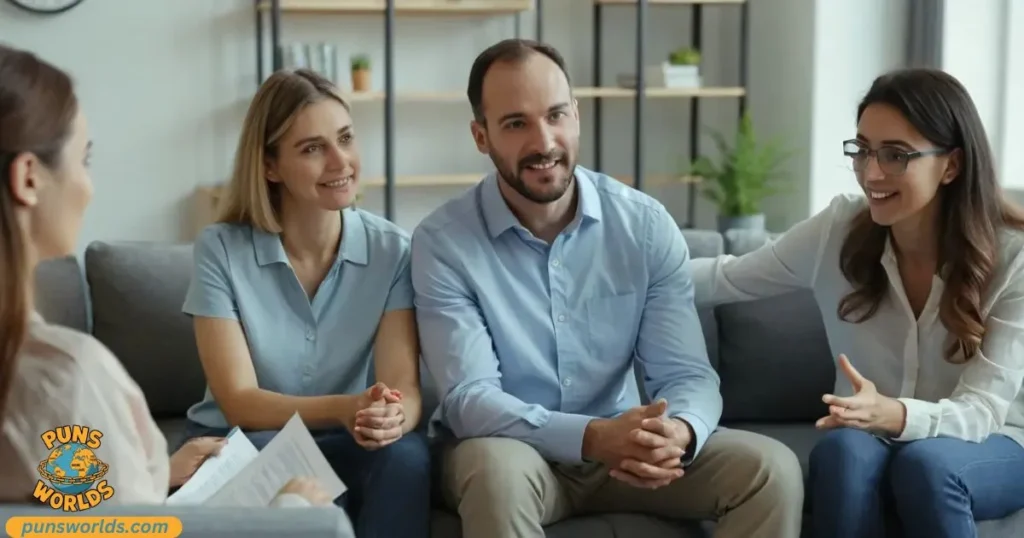
- What did the developmental psychologist think of his new study? “It’s a fascinating look into developmental phases!”
- How does a developmental psychologist handle new trends? By evaluating their impact on developmental growth.
- Why did the developmental psychologist enjoy studying adolescent behavior? It’s a critical period of development!
- What’s a developmental psychologist’s favorite book? Anything that explores developmental stages!
- How did the developmental psychologist view educational techniques? As essential tools for developmental progress.
- Why did the developmental psychologist love watching children grow? It’s a key aspect of developmental research!
- What did the developmental psychologist say about cognitive development? “It’s a fascinating area of study!”
- How does a developmental psychologist respond to new theories? By integrating them into developmental frameworks.
- Why did the developmental psychologist enjoy early childhood education? It’s crucial for understanding developmental processes!
Clinical Puns: Jokes About Clinical Psychology
- Why did the clinical psychologist enjoy cooking? It’s a great way to analyze recipe patterns!

- How does a clinical psychologist handle stress? By analyzing stressors and coping strategies!
- What did the clinical psychologist say about therapy? “It’s a process of understanding and healing!”
- How did the clinical psychologist view relaxation techniques? As essential tools for managing mental health!
- What’s a clinical psychologist’s favorite type of exercise? Anything that reduces stress and promotes well-being!
- How does a clinical psychologist deal with complex cases? By applying a range of therapeutic techniques!
- Why did the clinical psychologist enjoy gardening? It’s a great way to cultivate mental and emotional well-being!
- What did the clinical psychologist say about self-care? “It’s crucial for maintaining mental health!”
- How does a clinical psychologist handle feedback? By using it to improve therapeutic approaches!
- What’s a clinical psychologist’s favorite type of therapy? Any that involves understanding and resolving issues!
- Why did the clinical psychologist like journaling? It’s a great way to explore thoughts and emotions!
- How did the clinical psychologist view mindfulness? As an important practice for mental clarity!
- What did the clinical psychologist say about coping strategies? “They’re essential for managing life’s challenges!”
- Why did the clinical psychologist enjoy team-building activities? They’re perfect for fostering positive interactions!
- What’s a clinical psychologist’s favorite hobby? Anything that supports mental well-being!
- How does a clinical psychologist approach problem-solving? By analyzing underlying issues and developing strategies!
- What did the clinical psychologist think of relaxation methods? “They’re key for maintaining emotional balance!”
- Why did the clinical psychologist enjoy puzzles? They’re great for understanding cognitive patterns!
- How did the clinical psychologist handle a new client? By applying therapeutic techniques tailored to individual needs!
- What’s a clinical psychologist’s favorite type of book? Anything related to mental health and therapy!
- How does a clinical psychologist view personal growth? As a journey of understanding and improvement!
- Why did the clinical psychologist enjoy stress management workshops? They’re excellent for learning new techniques!
- What did the clinical psychologist say about therapeutic relationships? “They’re crucial for effective therapy!”
- How did the clinical psychologist handle a tough case? By using a combination of therapeutic approaches!
- Why did the clinical psychologist like role-playing exercises? They’re great for practicing therapeutic techniques!
- What’s a clinical psychologist’s favorite relaxation activity? Anything that promotes mental peace and clarity!
- How does a clinical psychologist deal with challenging emotions? By exploring their roots and finding solutions!
- What did the clinical psychologist say about self-improvement? “It’s a continuous process of growth and development!”
- Why did the clinical psychologist enjoy attending seminars? They’re perfect for learning about new therapeutic methods!
- How does a clinical psychologist view emotional intelligence? As a key component of effective therapy!
- What’s a clinical psychologist’s favorite type of therapy session? One that promotes open and honest communication!
- How did the clinical psychologist handle a difficult client? By employing a range of therapeutic strategies!
- What did the clinical psychologist think of their new office space? “It’s perfect for creating a calming therapeutic environment!”
- Why did the clinical psychologist enjoy group therapy? It’s a valuable way to explore shared experiences and solutions!
- How does a clinical psychologist deal with burnout? By practicing self-care and professional development!
- What’s a clinical psychologist’s favorite relaxation technique? Any method that helps reduce stress and anxiety!
- Why did the clinical psychologist like cognitive-behavioral therapy? It’s effective for addressing a wide range of issues!
- How did the clinical psychologist handle a new therapeutic approach? By integrating it into existing practices!
- What did the clinical psychologist say about therapeutic goals? “They’re important for guiding the therapy process!”
- Why did the clinical psychologist enjoy reflective practice? It’s great for understanding and improving therapeutic techniques!
- How does a clinical psychologist view client progress? As a measure of the effectiveness of therapy!
- What’s a clinical psychologist’s favorite aspect of therapy? The opportunity to make a positive impact on clients’ lives!
- How did the clinical psychologist approach a challenging case? By applying evidence-based practices and techniques!
- Why did the clinical psychologist enjoy therapeutic exercises? They’re effective for exploring and addressing client issues!
- What did the clinical psychologist think of new research? “It’s valuable for enhancing therapeutic methods!”
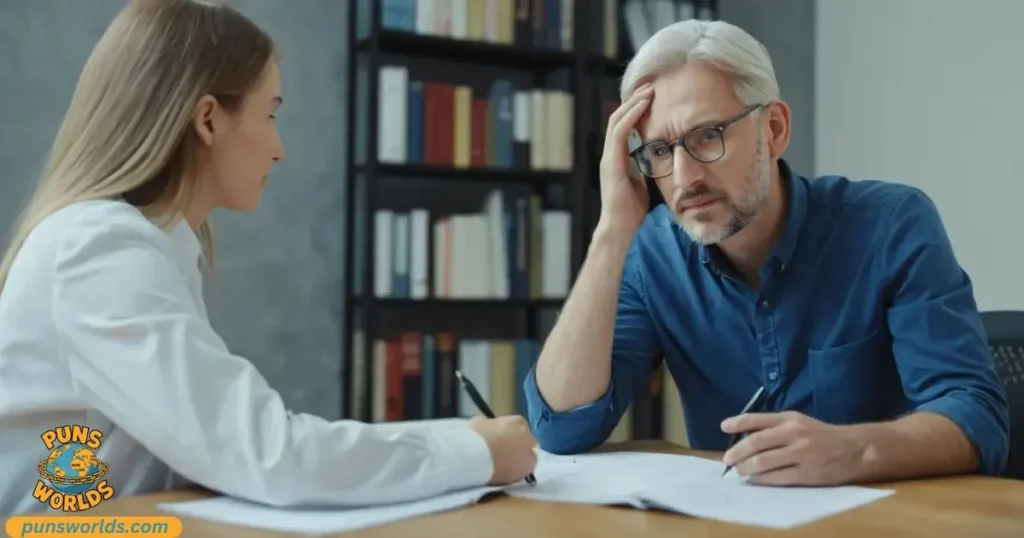
- How does a clinical psychologist view client feedback? As a tool for improving therapy outcomes!
- Why did the clinical psychologist enjoy creating therapy plans? It’s an opportunity to tailor approaches to individual needs!
- What’s a clinical psychologist’s favorite part of the job? Helping clients achieve their mental health goals!
- How did the clinical psychologist handle difficult emotions? By using therapeutic techniques and self-care practices!
- What did the clinical psychologist say about therapeutic relationships? “They’re central to the success of therapy!”
Forensic Puns: Jokes About Forensic Psychology
- Why did the forensic psychologist enjoy crime novels? They’re great for understanding criminal behavior!
- How does a forensic psychologist handle evidence? By analyzing it through a psychological lens!
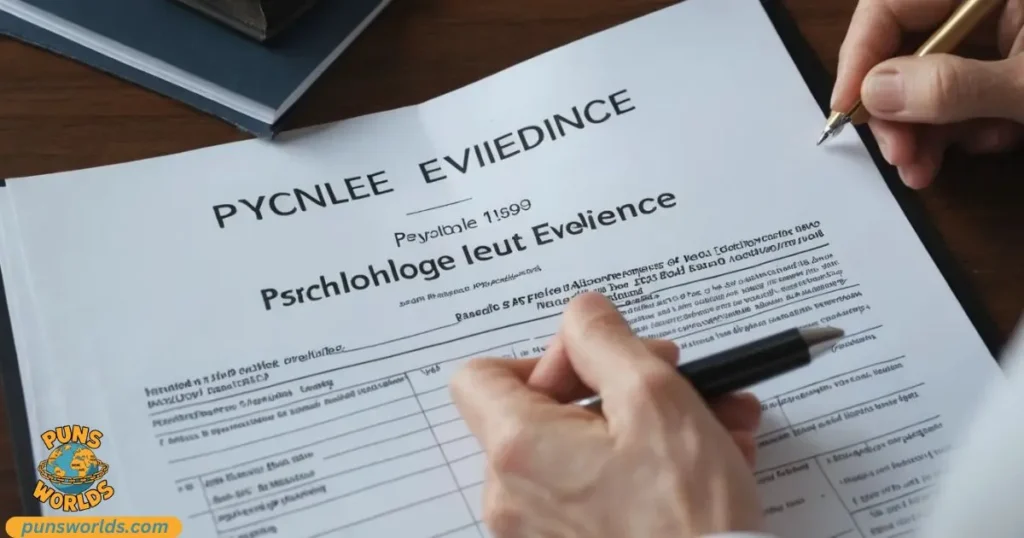
- What did the forensic psychologist say about criminal cases? “They’re complex puzzles to solve!”
- Why did the forensic psychologist enjoy courtroom dramas? They provide insights into legal and psychological dynamics!
- How does a forensic psychologist view witness statements? As valuable data for understanding behavior!
- What’s a forensic psychologist’s favorite type of puzzle? Anything that involves deciphering psychological clues!
- Why did the forensic psychologist enjoy cold cases? They’re perfect for applying forensic psychological analysis!
- How does a forensic psychologist handle new evidence? By integrating it into psychological profiles!
- What did the forensic psychologist say about their job? “It’s about uncovering the truth through psychological insights!”
- How does a forensic psychologist view legal testimonies? As crucial elements in understanding criminal behavior!
- Why did the forensic psychologist like studying criminal minds? It’s a fascinating area of psychological research!
- What’s a forensic psychologist’s favorite investigation tool? Anything that helps analyze criminal behavior!
- How does a forensic psychologist handle complex cases? By applying psychological theories to solve them!
- What did the forensic psychologist think of profiling? “It’s a key tool for understanding criminal behavior!”
- Why did the forensic psychologist enjoy cross-examinations? They provide insights into psychological motivations!
- How does a forensic psychologist view crime scenes? As valuable sources of psychological evidence!
- What did the forensic psychologist say about their role? “It’s about piecing together psychological and legal elements!”
- How did the forensic psychologist approach a new case? By developing a psychological profile based on evidence!
- Why did the forensic psychologist like forensic science? It’s a way to apply psychological principles to criminal investigations!
- What’s a forensic psychologist’s favorite aspect of the job? Analyzing the psychological factors behind criminal behavior!
- How does a forensic psychologist deal with high-profile cases? By maintaining a focus on psychological analysis!
- What did the forensic psychologist think of courtroom dramas? “They’re great for understanding the interplay of psychology and law!”
- Why did the forensic psychologist enjoy studying motive? It’s essential for understanding criminal actions!
- How does a forensic psychologist approach psychological assessments? By using them to build a comprehensive understanding of criminal behavior!
- What did the forensic psychologist say about their work? “It’s a mix of psychology, law, and detective work!”
- How does a forensic psychologist handle witness testimonies? By analyzing them for psychological insights!
- What’s a forensic psychologist’s favorite research topic? Anything involving criminal psychology and behavior!
- Why did the forensic psychologist enjoy solving mysteries? They provide opportunities to apply forensic psychological skills!
- How does a forensic psychologist view criminal profiles? As essential tools for understanding and predicting behavior!
- What did the forensic psychologist say about their career? “It’s a journey of uncovering psychological truths in legal contexts!”
- Why did the forensic psychologist like crime scenes? They offer clues to understanding criminal behavior!
- How does a forensic psychologist handle challenging cases? By applying psychological insights to unravel complexities!
- What did the forensic psychologist think of psychological evaluations? “They’re crucial for understanding criminal intentions!”
- How does a forensic psychologist approach criminal behavior analysis? By integrating psychological theories and evidence!
- Why did the forensic psychologist enjoy legal dramas? They offer a window into the world of forensic psychology!
- What’s a forensic psychologist’s favorite part of the job? Analyzing and understanding criminal behavior!
- How does a forensic psychologist view their role in the legal system? As a bridge between psychology and law!
- What did the forensic psychologist say about their work? “It’s all about understanding the mind behind the crime!”
- Why did the forensic psychologist like interviewing suspects? It’s a key part of developing psychological profiles!
- How does a forensic psychologist handle new cases? By applying psychological expertise to solve them!
- What’s a forensic psychologist’s favorite type of case? One that involves complex psychological analysis!
- How did the forensic psychologist approach a high-stakes trial? By focusing on psychological evidence and insights!
- What did the forensic psychologist think of psychological profiling? “It’s an essential tool for understanding criminal behavior!”
- Why did the forensic psychologist enjoy studying criminal patterns? They offer insights into psychological factors influencing behavior!
- How does a forensic psychologist view their work? As a blend of psychology, investigation, and law!
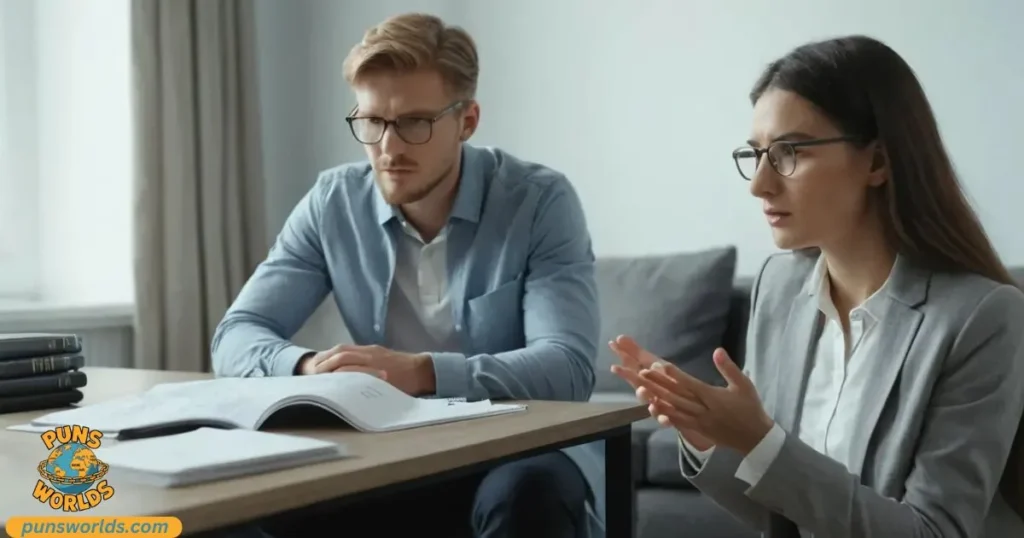
- What’s a forensic psychologist’s favorite investigative technique? Anything that helps uncover psychological motivations!
- Why did the forensic psychologist enjoy courtroom analysis? It’s a chance to see psychology in action within the legal system!
- How does a forensic psychologist handle conflicting testimonies? By analyzing them for psychological consistency!
- What did the forensic psychologist say about their career path? “It’s a fascinating journey into the criminal mind!”
- How does a forensic psychologist approach a new investigative tool? By evaluating its usefulness in psychological analysis!
Answers to Key Questions
What are psychologist puns?
Psychologist puns are jokes or wordplay that involve psychological concepts or terminology. They use humor to play on the language and ideas commonly found in psychology, often leading to a funny or witty interpretation of psychological principles.
Why are psychologist puns funny?
Psychologist puns are funny because they blend serious psychological topics with humor. By taking psychological terms or scenarios and turning them into jokes, they create a playful contrast that can be both entertaining and thought-provoking.
Can psychologist puns be used in professional settings?
While psychologist puns can lighten the mood and foster a sense of camaraderie among colleagues, it’s important to ensure that the humor is appropriate and sensitive to the context. In professional settings, especially in clinical or therapeutic environments, humor should be used thoughtfully.
How can psychologist puns help in learning psychology?
Psychologist puns can make learning about psychology more engaging and memorable. By associating psychological concepts with humor, students might find it easier to recall and understand complex ideas and terms.
Are there any benefits to using psychologist puns in therapy?
In therapy, psychologist puns can help build rapport and ease tension. They can make the therapeutic environment more relaxed and approachable, encouraging clients to feel comfortable and engaged. However, it’s crucial to use humor that aligns with the client’s sensitivity and individual needs.
Conclusion
Incorporating humor into psychology through puns can bring a refreshing twist to the field. Whether it’s through jokes about cognitive theories, developmental stages, or clinical practices, psychologist puns serve to both entertain and enlighten.
By making complex psychological concepts more approachable and memorable, these puns can foster a deeper appreciation for the intricacies of the human mind. As we laugh at these clever plays on words, we not only enjoy a good chuckle but also gain insight into the fascinating world of psychology.

I’m Zadie Smith, and I add a creative twist to the puns at Puns Worlds. My unique take on wordplay turns the ordinary into something unexpectedly funny, always leaving readers with a smile.

